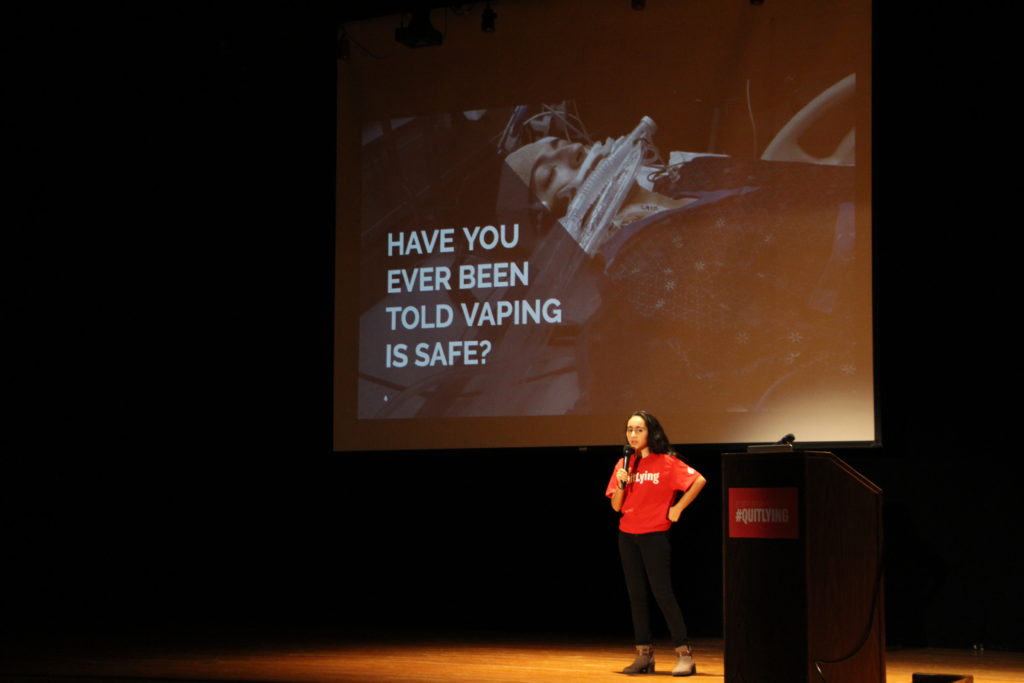
Townsend Harris organized a ‘Quit Lying’ assembly in the auditorium to inform students about the lies e-cigarette companies use to market their products to teenagers. The assembly, held on January 16, aimed to address the escalating negative ramifications e-cigarette use has on young consumers by educating them not to fall prey to false advertisements and deceptive marketing.
With the rise of e-cigarettes in the last twenty years, much of the progress America has made in encouraging adolescents to abstain from traditional cigarettes is quickly being reverted. In the last two years, the number of high school students using e-cigarettes has increased by over 15% nationwide, according to CBS. Popular e-cigarette companies such as JUUL advertise to this demographic by offering a large variety of flavors. Due to their sleek design and resemblance to a USB drive, the product is visually appealing to teenagers and easily concealable at school.
The Quit Lying campaign, created by the American Heart Association, acknowledges the tactics that big tobacco companies use to sell their products, and actively works to spread awareness about this problem. Unlike other anti-vape campaigns that focus on warning teenagers about the risks of vaping, the Quit Lying campaign specifically tackles the issue of vaping companies falsely advertising the dangers of vaping.
The assembly was organized by members of the American Heart Association Assistant Principal of Organization Ellen Fee, Coordinator of Student Activities Sarah Loew, and student leader junior Emanuella Borukh, who spoke about her experiences with vaping. After being offered to vape by her middle school friends, Emanuella decided to fight for change by doing anti-drugs and anti-vape work within her community for multiple years after the incident. “I hope that the Quit Lying campaign will be a step forward in stopping big businesses from manipulating teens and children,” she said. “Specifically, I hope that the campaign will show and remind teenagers that we are sacrificing our health and our future to make Big Vape more money.”
Aside from Emanuella, many other students had experiences of being introduced to juuling or e-cigarettes starting from a very young age. Almost every person in the assembly raised their hands after being asked whether or not the students knew anyone who juuled or had ever been offered juuls. For instance, junior Alexan Varelas said, “I know many people and close friends who juul and have offered me a hit which I’ve declined.”
Many THHS students were not aware of the dangers of vaping, and many believed e-cigarettes to be less harmful than normal cigarettes. For example, one of Emanuella’s friends tried to convince her to vape by saying that “it is just like a humidifier but flavored.” However, this assembly revealed that JUUL vaporizers contain many harmful chemicals such as formaldehyde, acetone, and heavy metals that have led to the hospitalization of over 2,000 people. An attendee of the assembly junior Pehal Singh said, “I knew it was not healthy, but I thought it was more of a safer version of smoking because it did not involve using cigarettes. I learned that vaping is even more dangerous than smoking with cigarettes.”
The assembly ended with students signing the #QuitLying letter to Big Vape at QuitLying.org.
Photo by Rachel Lin.



























